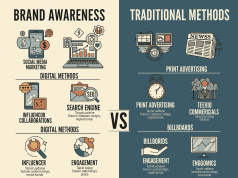Introduction
As the world increasingly shifts towards digital platforms, the intersection of data privacy and advertising technology (AdTech) has become a focal point for individuals, businesses, and regulators alike. With the advent of stringent privacy regulations and heightened consumer awareness, navigating this evolving landscape is no longer just a challenge—it’s a necessity.
The Landscape of AdTech
AdTech encompasses a range of technologies used to deliver, track, and analyze digital advertisements. From programmatic buying to customer relationship management systems, data is the backbone of AdTech. Companies rely heavily on consumer data to create personalized marketing experiences, optimize ad placements, and boost ROI. However, this data-driven approach has raised serious concerns about privacy.
Consumer Concerns and Regulatory Changes
Rising Awareness
Consumers today are more aware of how their data is collected and used. High-profile data breaches, scandals (such as Cambridge Analytica), and growing public discourse around privacy rights have led to a surge in demand for transparency and accountability. According to a recent survey, approximately 80% of consumers express concern over their data privacy.
Regulatory Landscape
In response to consumer demand, regulatory bodies worldwide have begun enacting legislation to safeguard personal data. The General Data Protection Regulation (GDPR) in Europe set a precedent, introducing stricter data handling practices and giving individuals greater control over their personal information. Similarly, the California Consumer Privacy Act (CCPA) has empowered Californian residents with the right to know what personal data is being collected and how it is used.
These regulations have led to a significant shift in how AdTech companies operate. Compliance is no longer optional; companies that fail to adhere to these rules face hefty fines and reputational damage.
Impact on AdTech Strategies
Data Minimization
In light of increasing regulations, companies are adopting the principle of data minimization. This involves collecting only the data necessary for specific purposes, thus reducing the risk of non-compliance and maintaining consumer trust.
Privacy-Centric Marketing
AdTech providers are now pivoting towards privacy-centric approaches. Strategies like contextual advertising, which targets users based on the content they’re engaging with rather than their personal data, are gaining traction. These methods maintain effectiveness while respecting consumer privacy.
Enhanced Consent Mechanisms
With regulations emphasizing informed consent, businesses are redesigning how they seek permission to collect data. Transparent consent management platforms that clearly outline data usage can help build trust and foster a positive relationship with consumers.
Technological Innovations
Improved Data Security
The AdTech sector is increasingly investing in advanced security measures to protect consumer data. Encryption, anonymization, and decentralized data storage are becoming standard practices to enhance data security and build consumer confidence.
Artificial Intelligence and Machine Learning
AI and machine learning are revolutionizing how companies analyze consumer behavior while minimizing data reliance. These technologies can optimize ad targeting and improve user experiences by drawing insights from aggregated, anonymized data rather than individual data points.
The Role of Transparency
Transparency has emerged as a critical component in the evolving AdTech landscape. Brands that openly communicate their data practices and foster authentic relationships with their audience are likely to gain a competitive edge. Providing clear privacy policies, engaging users in conversations about data use, and ensuring easy opt-out options help build trust and loyalty.
Conclusion
The confluence of data privacy and AdTech presents both challenges and opportunities. While navigating this new normal requires substantial changes in strategy and technology, companies that prioritize consumer rights and privacy are likely to thrive in the long run. As regulations continue to evolve and consumer expectations rise, the AdTech industry must adapt proactively, position itself as a leader in transparency, and foster a sustainable, privacy-centric future.
In this landscape, the new normal isn’t just about compliance—it’s about cultivating trust and delivering value to consumers while respecting their privacy. Ultimately, a balanced approach will not only benefit individuals but also drive long-term success for businesses in the digital age.









